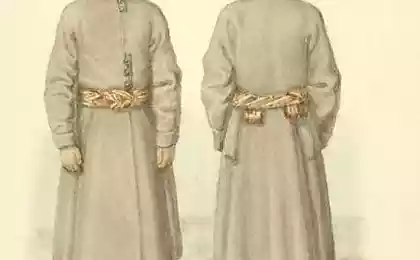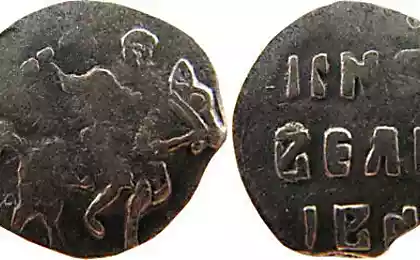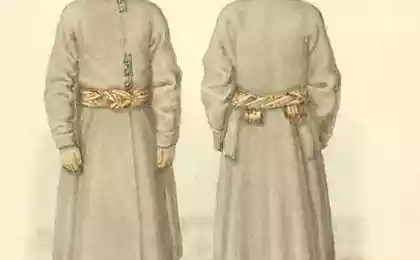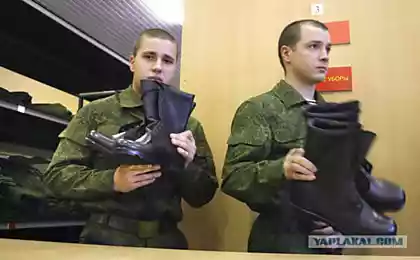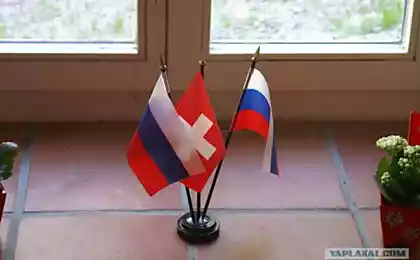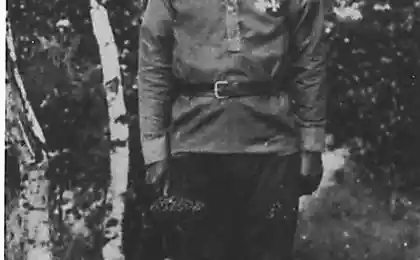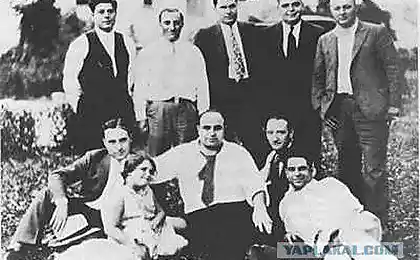1295
What is the nickname given Russian
It has long been the custom to give a nickname nationalities to distinguish people: how he, with whom he communicates, and even who his neighbor. There is a general name of national nicknames referred to as an exonym.
In Russian, there are 7 nicknames, let's find out what.
Katsap
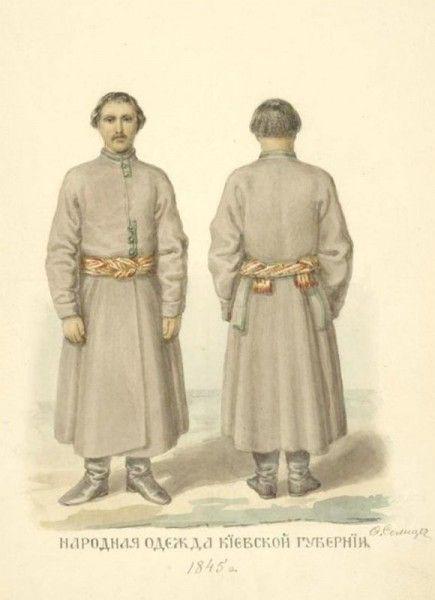
This playful nickname received from Russian brothers - "Ukrainians". Scientists are still arguing why. Some say "katsap" - meaning "as DAC" (goat). Shaved Ukrainian bearded Russian resembled a goat. Others see here Turkic roots, and the word "Kasap" is translated as "the butcher, the thief." There are also various derivatives of the word katsap: Russia called "Katsap", "Katsapetovkoy", "Katsapuriey", "Katsaplyandiey" or "Katsapstanom." In literature and folklore, very often you can find the word "katsap." Here's an example - "God target DAC (goat), and the devil Katsap" (Ukrainian proverb).
Moskal
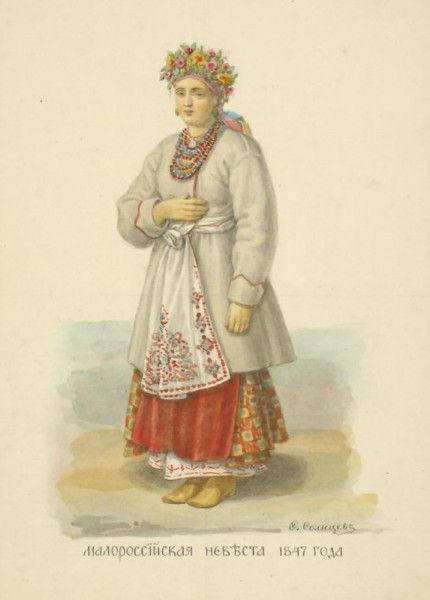
Russian, most of all - a native of Moscow, which, even if not the capital, had a huge impact on the Russian land and public affairs of neighboring countries. Negative connotation nickname received immediately. During campaigns, Russian troops did not live in the barracks and camps, and in the huts of indigenous people who feed them. Fed or hungry soldiers will (Moskal) depended on his ability to "negotiate" with the owners of the house on the grub. In addition, the Russian soldiers were indifferent to local girls. However, the relationship lasted only until the Muscovites were the guests of the village. And when the call of duty soldier called in other lands, with local girl forgets. Then there was the verb "Moskal" - cheat, cheat.
Ivan
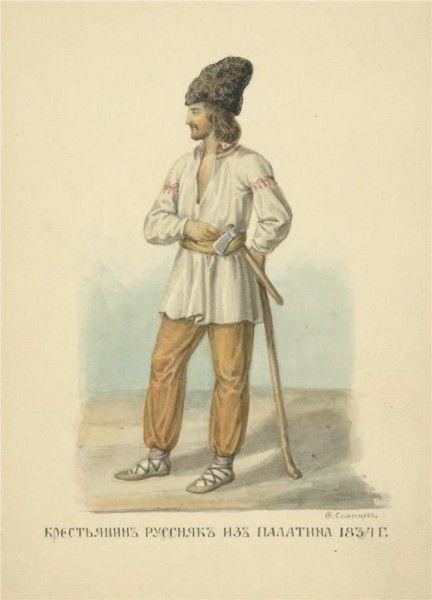
Since the days of the Second World War in Germany and the United States called the Russian "Ivan". In response, Russian Germans called "Fritz", and, in addition, Caucasians - "Hachiko", "hachami." "Cross" in Armenian means "cross", and this is one of the most popular names in Armenia. By the way, Muslims - Azerbaijanis and Turks - were the first to call Armenians "Hachiko».
Mauchzhe
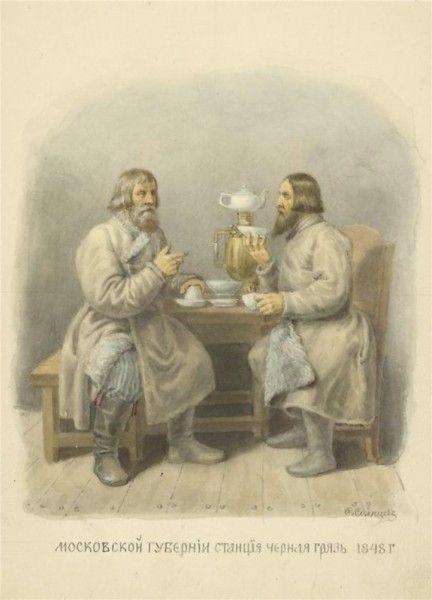
Nickname Russian, Soviet Koreans. This word - spoken Korean-style Chinese word "Maoz" (or "moutszy"), which means "bearded", so called Russian Chinese.
Venyalyaynen and Ryussya
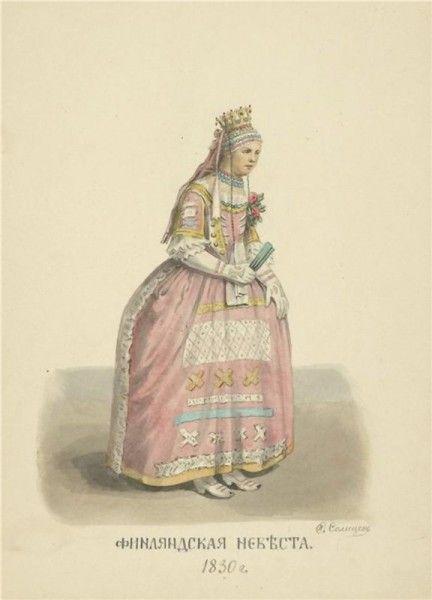
Neutral designation Russian in Finnish - "venyalyaynen." "Ryussya" - a pejorative. Currently, the word "ryussya" is used in the spoken language is often in relation to all persons in Finland Russian speakers, originating from the former Soviet Union, sometimes including children of mixed marriages. Originally a nickname used in reference to the Orthodox population (mostly ethnically Karelian). Helped spread the word that in Swedish, which has long maintained a leading position in Finland, Russian called and called to this day the word «ryss» (stylistically neutral). So in western Finland, which imposed a strong imprint of Swedish, the word «ryssä» neglect does not matter. Not so long ago "national question" came to court. A resident of Lahti sued his employer for what he called his son "ryussya." Employers are obliged to pay a large compensation. It's funny that popular cocktail Black Russian Finnish sounds like Musta Ryssä - «black hare", "expression" Russian Roulette "is translated as ryssä ruletta, but sometimes say and fi: vunalainen ruletta. Mirror insulting designation Finns in Russian - "Chukhno." In the dictionary Dahl: "Finn, Chukhonka, peterburzhskikh nickname suburban Finns».
Tybla, tibla
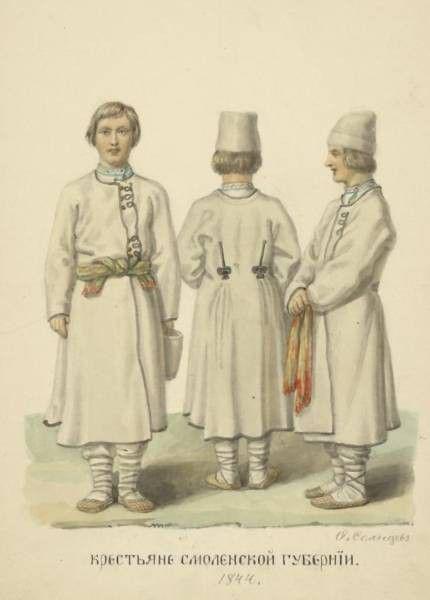
This etnofolizm got Russian neighbors - "Baltic states", more precisely Estonians. "Tybla" came from circulation "you, bl.." So initially in Estonia called the Red Army in 1918-1920, 1940-1941 and 1944. Relatively few of the Russian minority in pre-war independent Estonia this appeal is not concerned at first. During the Soviet regime, this expression began to be used only among the indigenous population. After gaining the freedom of speech and independence in 1991, firmly established in the lexicon as contemptuous and insulting nickname of Russian-speaking inhabitants of the country, especially those who do not speak the local language. Media Council believes that the expression «tibla» is primarily used as a designation of Homo soveticus (Soviet Man).
Shuravi
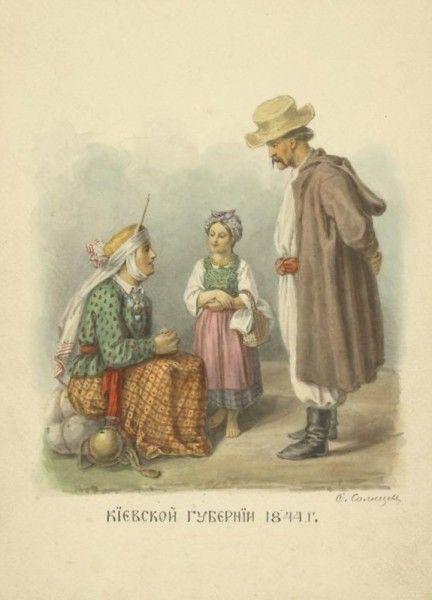
Originally designation soldiers in Afghanistan USSR (Russian equivalent of the word shouravi - šouravī: Soviet). At this point neutral, even respectful designation of all Russian in Arab countries.
In Russian, there are 7 nicknames, let's find out what.
Katsap

This playful nickname received from Russian brothers - "Ukrainians". Scientists are still arguing why. Some say "katsap" - meaning "as DAC" (goat). Shaved Ukrainian bearded Russian resembled a goat. Others see here Turkic roots, and the word "Kasap" is translated as "the butcher, the thief." There are also various derivatives of the word katsap: Russia called "Katsap", "Katsapetovkoy", "Katsapuriey", "Katsaplyandiey" or "Katsapstanom." In literature and folklore, very often you can find the word "katsap." Here's an example - "God target DAC (goat), and the devil Katsap" (Ukrainian proverb).
Moskal

Russian, most of all - a native of Moscow, which, even if not the capital, had a huge impact on the Russian land and public affairs of neighboring countries. Negative connotation nickname received immediately. During campaigns, Russian troops did not live in the barracks and camps, and in the huts of indigenous people who feed them. Fed or hungry soldiers will (Moskal) depended on his ability to "negotiate" with the owners of the house on the grub. In addition, the Russian soldiers were indifferent to local girls. However, the relationship lasted only until the Muscovites were the guests of the village. And when the call of duty soldier called in other lands, with local girl forgets. Then there was the verb "Moskal" - cheat, cheat.
Ivan

Since the days of the Second World War in Germany and the United States called the Russian "Ivan". In response, Russian Germans called "Fritz", and, in addition, Caucasians - "Hachiko", "hachami." "Cross" in Armenian means "cross", and this is one of the most popular names in Armenia. By the way, Muslims - Azerbaijanis and Turks - were the first to call Armenians "Hachiko».
Mauchzhe

Nickname Russian, Soviet Koreans. This word - spoken Korean-style Chinese word "Maoz" (or "moutszy"), which means "bearded", so called Russian Chinese.
Venyalyaynen and Ryussya

Neutral designation Russian in Finnish - "venyalyaynen." "Ryussya" - a pejorative. Currently, the word "ryussya" is used in the spoken language is often in relation to all persons in Finland Russian speakers, originating from the former Soviet Union, sometimes including children of mixed marriages. Originally a nickname used in reference to the Orthodox population (mostly ethnically Karelian). Helped spread the word that in Swedish, which has long maintained a leading position in Finland, Russian called and called to this day the word «ryss» (stylistically neutral). So in western Finland, which imposed a strong imprint of Swedish, the word «ryssä» neglect does not matter. Not so long ago "national question" came to court. A resident of Lahti sued his employer for what he called his son "ryussya." Employers are obliged to pay a large compensation. It's funny that popular cocktail Black Russian Finnish sounds like Musta Ryssä - «black hare", "expression" Russian Roulette "is translated as ryssä ruletta, but sometimes say and fi: vunalainen ruletta. Mirror insulting designation Finns in Russian - "Chukhno." In the dictionary Dahl: "Finn, Chukhonka, peterburzhskikh nickname suburban Finns».
Tybla, tibla

This etnofolizm got Russian neighbors - "Baltic states", more precisely Estonians. "Tybla" came from circulation "you, bl.." So initially in Estonia called the Red Army in 1918-1920, 1940-1941 and 1944. Relatively few of the Russian minority in pre-war independent Estonia this appeal is not concerned at first. During the Soviet regime, this expression began to be used only among the indigenous population. After gaining the freedom of speech and independence in 1991, firmly established in the lexicon as contemptuous and insulting nickname of Russian-speaking inhabitants of the country, especially those who do not speak the local language. Media Council believes that the expression «tibla» is primarily used as a designation of Homo soveticus (Soviet Man).
Shuravi

Originally designation soldiers in Afghanistan USSR (Russian equivalent of the word shouravi - šouravī: Soviet). At this point neutral, even respectful designation of all Russian in Arab countries.


